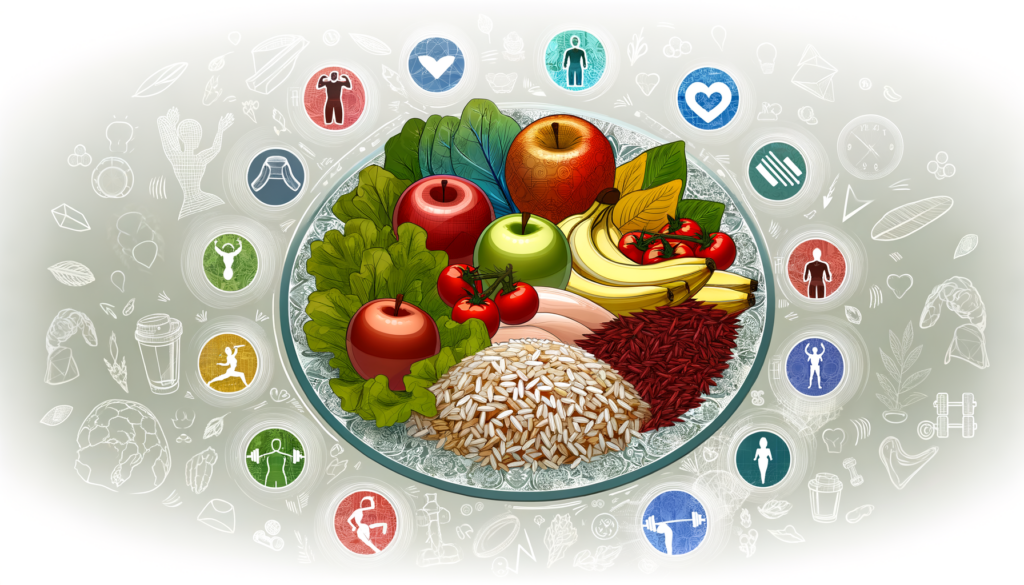The Interplay Between Calorie Balance and Fertility: A Comprehensive Guide
When it comes to fertility and reproductive health, the role of nutrition cannot be overstated. The balance of calories, along with the quality of the diet, plays a significant part in maintaining optimal reproductive function. Here, we will delve into the intricate relationship between calorie balance, fertility, and overall reproductive health.
The Impact of Energy Balance on Reproductive Function
Energy balance is a critical factor in reproductive health, particularly for women. The reproductive axis is closely linked to nutritional status, and any significant imbalance can affect ovulation and fertility. For instance, undernutrition due to eating disorders such as anorexia nervosa and bulimia nervosa can lead to amenorrhea (the absence of menstruation), infertility, and an increased risk of miscarriage.
Conversely, obesity also disrupts reproductive function. Excess body fat can lead to metabolic disorders, including insulin resistance and hyperinsulinemia, which are associated with conditions like polycystic ovary syndrome (PCOS). PCOS is a major cause of infertility and is characterized by irregular periods, hormone imbalances, and multiple fluid-filled sacs within the ovaries.
Caloric Restriction and Reproductive Health
Caloric restriction (CR), while often associated with weight loss and improved health outcomes, has a complex relationship with reproductive health. CR can prolong lifespan and protect against age-related deteriorations but can also impair female reproductive functions. This is because CR affects the energy homeostasis regulated by the hypothalamus-pituitary-ovarian axis, leading to reduced fertility in female mammals.
However, CR can also have beneficial effects on reproductive health, such as preserving the follicle pool and preventing premature ovarian failure. This highlights the need for a balanced approach to diet and calorie intake, rather than extreme restriction or excess. For those considering caloric restriction, it is crucial to use tools like the Calorie Calculator Cloud to ensure that the calorie balance is optimal for reproductive health.
Nutrient Sensing and Reproductive Hormones
The reproductive system is highly sensitive to nutrient availability, particularly glucose. Cells in the pituitary gland, known as gonadotropes, sense glucose levels through proteins like GLUT-1 and regulate hormone production accordingly. This complex interplay between diet and the reproductive system underscores the importance of maintaining a balanced diet to support reproductive health.
For example, a diet rich in whole grains, fruits, and vegetables, such as the Mediterranean diet, can provide the necessary nutrients for optimal hormone balance. Additionally, healthy fats like those found in extra virgin olive oil can support overall metabolic health.
Real-World Examples and Case Studies
Several studies and case studies illustrate the impact of diet on fertility. For example, the Nurses’ Health Study II, which included data from over 116,000 women, found that diets with low glycemic content and limited intake of unhealthy nutrients reduced the risk of ovulatory disorders and improved fertility outcomes.
Additionally, clinical trials have shown that nutritional interventions can be effective in managing reproductive conditions like PCOS. Reducing overall calorie and carbohydrate intake, for instance, can improve insulin sensitivity and hormone balance, thereby enhancing fertility. Tools like the Calorie Calculator Plans can help individuals tailor their diets to meet these specific needs.
Practical Tips for Improving Fertility Through Nutrition
In conclusion, the balance of calories and the quality of the diet are pivotal in maintaining optimal reproductive health. Here are some practical tips for those seeking to improve their fertility through nutrition:
- Adopt a Mediterranean-style diet: Focus on whole grains, vegetables, fruits, nuts, and healthy fats like olive oil.
- Maintain a healthy weight: Aim for a BMI between 18.5 and 25 to ensure optimal energy balance for reproductive functions.
- Avoid extreme caloric restriction: While weight loss can be beneficial, extreme caloric restriction can impair reproductive health.
- Monitor and manage metabolic health: Keep an eye on insulin levels and overall metabolic health to prevent conditions like PCOS and type 2 diabetes.
By understanding and implementing these dietary strategies, individuals can significantly improve their fertility and overall reproductive health.
Conclusion and Next Steps
The relationship between calorie balance and fertility is complex and multifaceted. By maintaining a balanced diet, avoiding extreme caloric restriction, and managing metabolic health, individuals can significantly enhance their reproductive health.
For those looking to make informed decisions about their diet and fertility, using a reliable calorie calculator such as the Calorie Calculator Cloud can be a valuable resource. This tool helps in planning a diet that is tailored to individual needs, ensuring that the calorie balance is optimal for reproductive health.
In summary, nutrition plays a critical role in fertility and reproductive health. By adopting a balanced and informed approach to diet, individuals can take significant steps towards improving their fertility outcomes. Start your journey today by understanding your calorie needs and making the right nutritional choices for your reproductive health.








